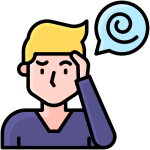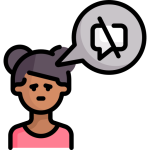What is Dysarthria?
Dysarthria is a speech disorder that most often presents as “slurred speech.” A person with dysarthria has the language to speak, but is difficult to understand due to muscle weakness or paralysis. Like aphasia, it can range from mild to severe. For some people, the severity can vary based on factors like fatigue or medications. In addition to the speech being slurred, it can also be at a faster or slower rate than usual, at a lower volume, or have an atypical rhythm.
What is the Difference Between Dysarthria and Aphasia?
Dysarthria and aphasia have a lot in common. They are both communication impairments that can be the result of a stroke, and can even occur at the same time. Both conditions can make communication difficult. The difference between the two is that dysarthria is a speech impairment while aphasia is a language impairment.
Aphasia is a language disorder, most commonly due to a stroke or other brain injury. People with aphasia often know what they want to say but cannot find the words – as if the word is on the “tip of the tongue.” There are several types of aphasia and they can occur at varying levels of severity. Someone with aphasia might also have impairments in auditory comprehension, reading, and writing.
Like aphasia, dysarthria is sometimes the result of a stroke or brain injury. However, dysarthria can also be caused by many other conditions, including ALS, Parkinson’s Disease, Cerebral Palsy, Multiple Sclerosis (MS), Huntington’s Disease or Muscular Dystrophy.
Treatment for Dysarthria
Treatment for dysarthria varies depending on the underlying condition and specific speech patterns that are present. Common techniques that can be useful for people with dysarthria include:
- Slowing the rate of speech
- Speaking at a louder volume
- Practice over-pronouncing sounds and words
- Using more breath to speak
Exercises to make the mouth and tongue muscles stronger are sometimes recommended. For people with severe dysarthria, augmentative and alternative communication (AAC) can be helpful if others are not able to understand their speech. This can include simple tools, like a pen and paper, or high-tech tools, like speech-generating devices.
If you or someone you know has been diagnosed with dysarthria, a speech-language pathologist can help. An SLP can determine what techniques and treatment strategies will work best for each individual case.
Click on the tiles below to learn more about conditions related to aphasia.
Apraxia

Dysarthria

Dysphasia

